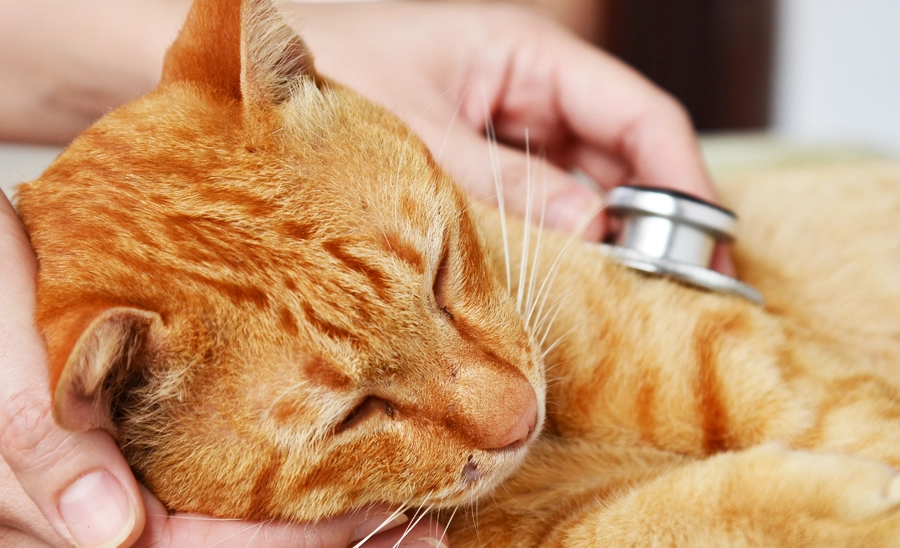
How to beat separation anxiety blues for pets.
We’ve been bunked down for a few weeks in isolation with our pets and it’s nearly time for us to return to the big wide world, but what about our pets when we return to work and social events?
Dogs aren’t the only pets that can suffer from separation anxiety. Cats, rabbits, birds and even some reptiles have been known to go through anxious separation from their owners too.
So ,we’ve put together some simple ideas to help you and your pet on your path to returning to the world.
Cats
Cats love playtime with their owners and although this alone can help tire out your cat for times you’re not home, finding toys they like to play with on their own can also help ease the stress of coming and going. If there’s particular toys your cat loves, try bringing them out for your cat to play with when you have to leave for the day and putting it away when you’re home so they don’t get bored of it (although keep in mind not to use the same toy every day as this can create an association between the toy and you leaving the house) and change it up with different toys. You can also scatter food or treats throughout the house for your cat to ‘hunt’ for. Puzzle and slow feeders are also a good option to keep your cat occupied.
Creating a ‘homely’ environment can help soothe your cat during times that you are out of the house. Leaving the radio or TV on low volume and leaving out pieces of clothing that smell like you can help comfort your cat when their alone. Enriching their environment with cat scratches and perches in the window can also aid in creating an explorative playground for your cat when you are not there to play with them.
Just like dogs, cats can read body language quite well. Acting calm and casual about coming and going will in turn tell your cat that you leaving the house isn’t a big deal as you will always return. Your cat might associate you holding your handbag or keys in your hand as a tell that you’re about to leave, try carrying these items with you at random times around the house to disassociate this habit with your cat so they don’t get worked up when these items come into play.
If you are concerned that your cat has developed serious anxiety, it is highly recommended that you make a trip to the vet to discuss treatment options. However, products like Feliway are great at helping to reduce and prevent stress in your cat. It comes in a spray bottle or plug-in diffuser and is easy to use. The way it works is by releasing a pheromone that mirrors the chemical that cats release through their glands to communicate to other cats that they are calm. Mother cats often release this chemical to calm their kittens.
Rabbits
Rabbits become attached to their owners like most other pets do and thrive off affection so it’s no surprise that they can become stressed when constant attention turns into less or no attention. An abrupt change in routine or environment can unsettle a rabbit and may be displayed in the following ways; changes in the way they are sleeping (ears down, paws tucked), breathing patterns become faster, fur falling out due to over grooming or scratching and lastly, destructive or drastic change in behaviours.
What can you do?
Ensure their cage is big enough. Rabbits love space and need space to stretch and feel comfortable. Letting your rabbit out to roam around the house (when you’re home) can help prevent stress induced anxiety from being stuck in their cage all the time.
Getting a second rabbit is often recommended to keep your current rabbit from getting bored, but be wary. While this might be a great solution long term, it is important to consider the process of introducing a new bunny into their life as this alone can cause anxiety and stress (an abrupt change of environment). Speak to your local independent retailer about how you can best ease this process.
As mentioned previously – do not make a big deal out of coming and going. Rabbits do not react well to sudden motions, loud noises and handling. If you let your rabbit out, be sure to give them enough time to go back to their hutch on their own or slowly coax them back inside as not to cause stress. They also have a great sense of smell to help identify animals and people, so familiar and comforting smells can help soothe an anxious rabbit.
Birds
Depending on the seriousness of the anxiety can depend on the best treatment used to help fix the behaviour. If you notice your bird exhibiting some signs of separation anxiety then training can play an important factor as birds are quite intelligent and training can help to encourage good behaviour when you’re not home. Leaving your bird alone for short periods and then slowly increasing the length of these absences over time can help ease the transition for birds. Showing affection and praise upon return if your bird has behaved appropriately also goes hand in hand with this training.
Providing toys that contain treats or food and inspire the bird to spend time on getting the food out can be a fun distraction for them when you are not home. This may require a few trial and errors attempt to discover what type of toy your bird truly loves playing with. Some birds love mirrors and shiny objects and others love shredding paper and rope and ringing bells. Try and collect a few different toys over time so your bird wont be able to anticipate what puzzle may come out on a daily basis.
It’s important to note that if you are concerned that your bird is extremely stressed then taking a visit to a bird specialist is highly recommended. If the issue is severe then anti-anxiety medication may be needed to treat the behaviour.
Reptiles
Some reptiles can be vulnerable to stress and sudden routinely change is a common cause. They are sensitive to human activity and can feel the effects of loneliness. If your reptile is changing colour or shedding their skin (completely or incompletely) outside their normal shedding periods, this can be a sign of stress. If you notice a loss of appetite, less active or irregular increase in activity then these can also be signs of stress.
What can you do?
If you do notice these unusual behaviours in your reptile then it’s good to review the following. Has your reptile got proper heating and lighting conditions? Reptiles are cold blooded and require warm and cool areas to regulate their body temperatures.
If you have any concerns about your pet, speak to our pet experts at Bronto.





